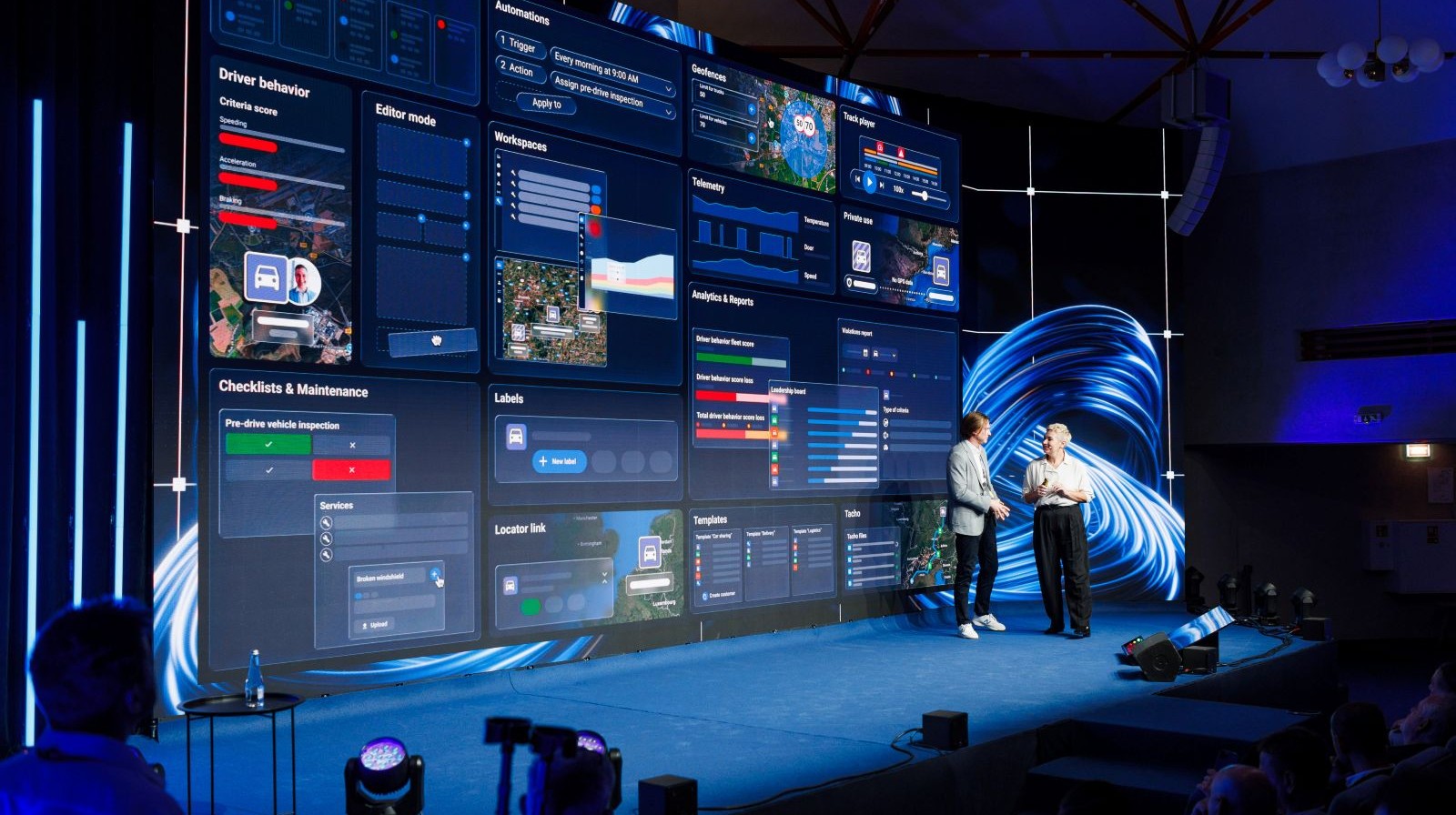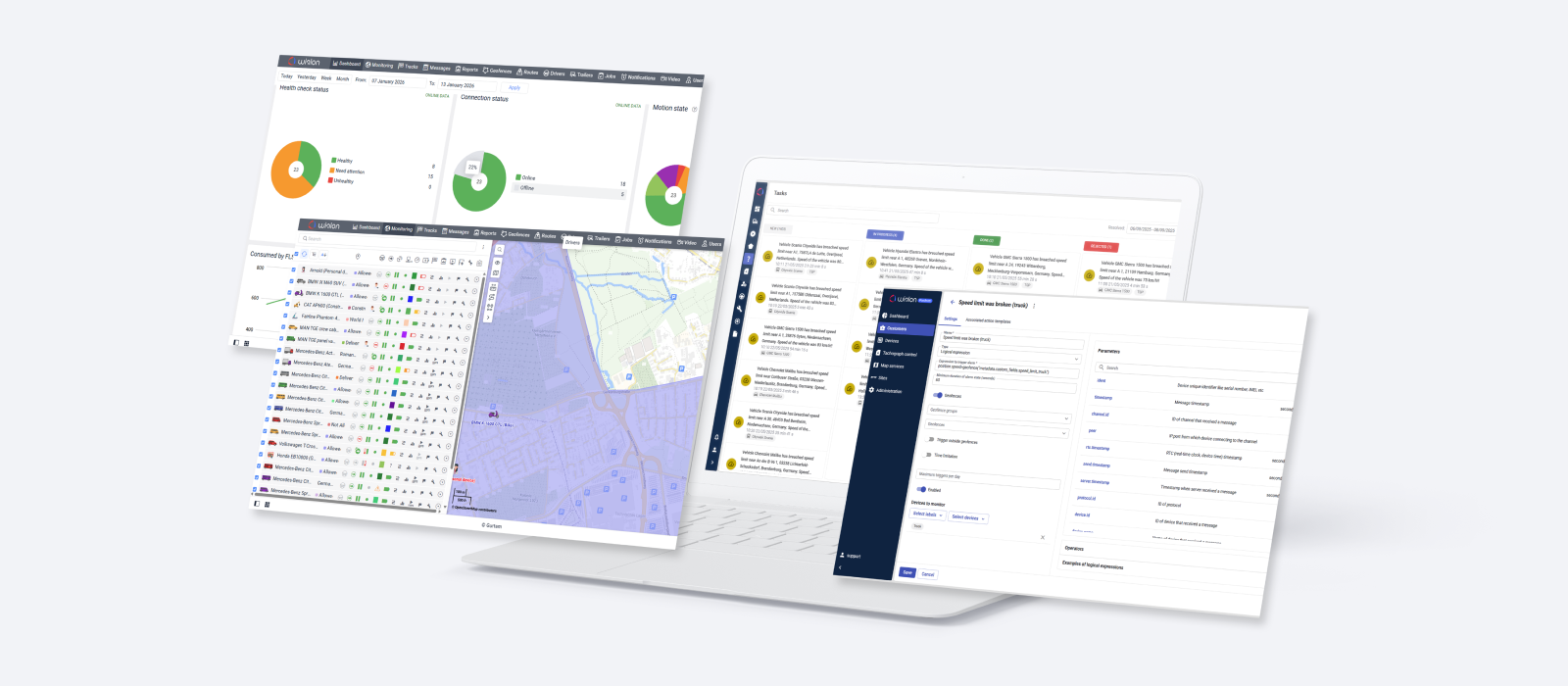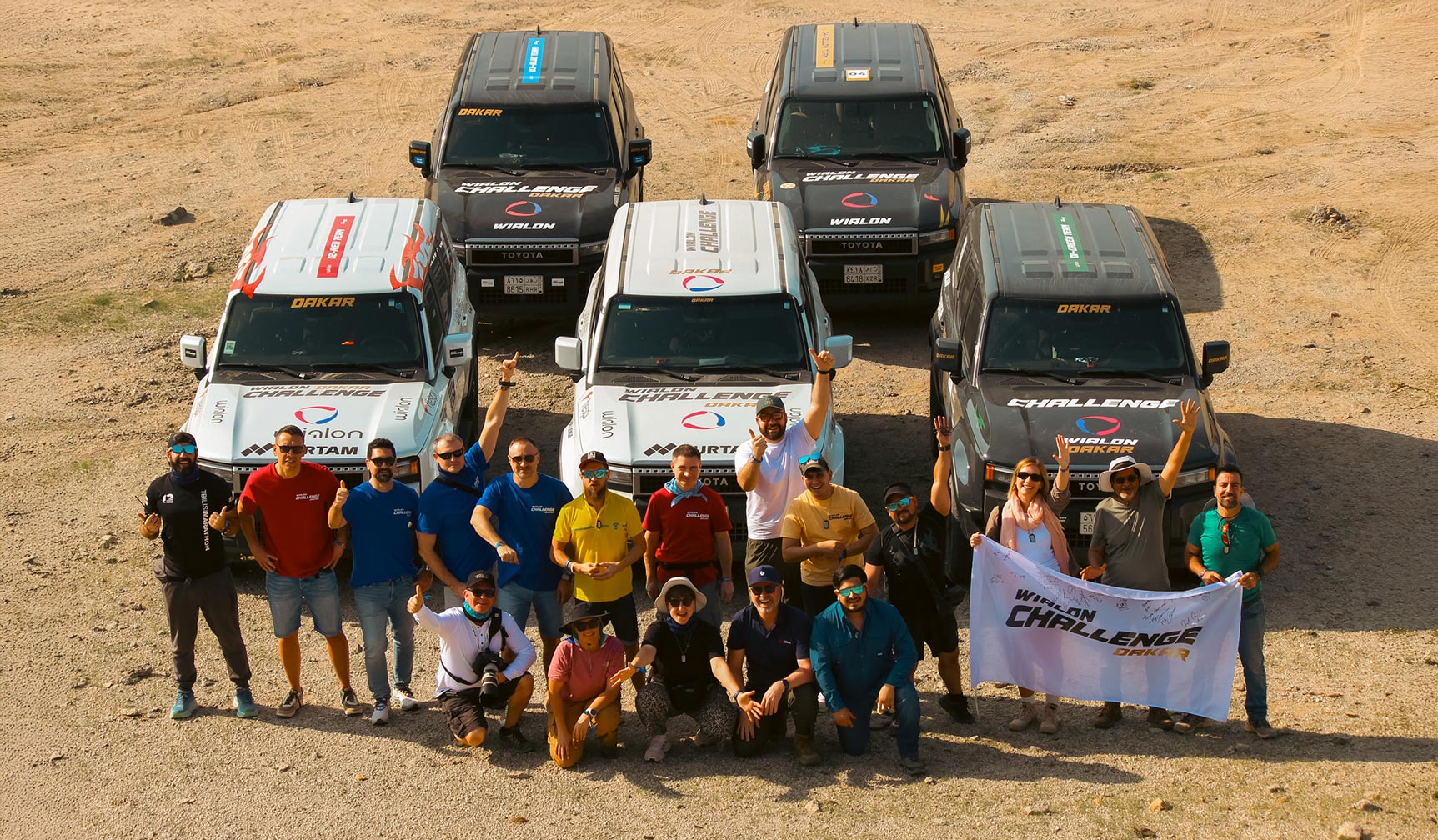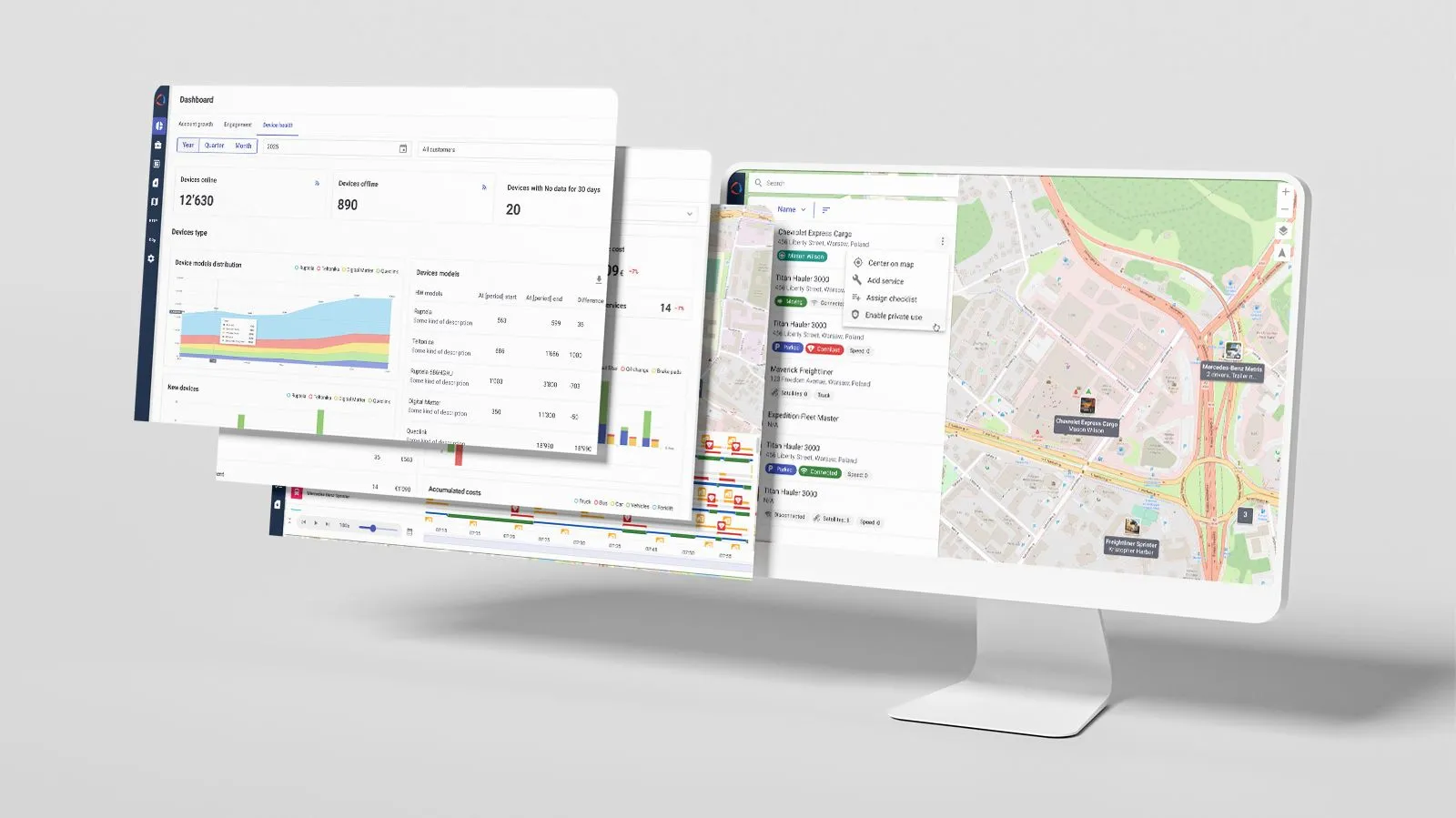Gurtam is continuing a series of meetups: here’s the recap of the online discussion with the companies who specialize in connectivity and hardware manufacturing. They are an integral part of the Wialon community, and we couldn’t miss a chance to ask them about their ideas on how to overcome the crisis.
What can help restore the disrupted supply chains? How to continue installations when your employees have to stay at home? Answers to these questions and other fresh thoughts on how to operate during the pandemic are in the text below.
Experts
- Carlos Villanueva, Global Channel Partnerships at BICS, Belgium
- Tadas Kairys, ASIA GPS Sales Development Executive at Teltonika, Lithuania
- Jerry Li, Global Market Director at Streamax, China
- Manuel Mendoza, International Sales Manager at Queclink, China
Moderator
Kseniya Dolia, Technology Partners Community Manager, Gurtam
Problems go hand in hand with opportunities
Our experts speak about how lockdown affects their companies and discuss emerging opportunities.
The reduction of sales
Tadas Kairys notices that the previous three months have been quite successful for Teltonika. He believes that the situation has developed this way thanks to the acceleration the company had last year. On the other hand, Tadas is less optimistic about the upcoming period. Clients and partners are not allowed to perform any installations because of the quarantine. As a consequence, sales will reduce. All telematics niches and markets will face the reduction.
The increase in traffic volumes of home networks
Carlos from BICS looks back to the recent past when internet providers experienced traffic peaks in the evening when people came home from work, schools, universities, etc. This pattern has changed now. Enterprise traffic was carried over the corporate networks, but now it is carried over the public internet.
“Global host sellers like us have noticed that the traffic has moved from the urban sections to the suburbs where people live and now work, and are trying to entertain themselves. The home networks do not have the capacities to carry such traffic volumes,” Carlos informs the participants of the meetup.
As a result, the majority of investments in IoT probably will shift to upgrading the capacity of the networks. Now networks in many countries work at their maximum capacities. If the lockdown continues, the operators won’t be able to maintain the same level of service. There are many cases when traffic increases by 50%. For example, in Spain, it has grown by 40%, and internet providers there had to ask citizens to be rational on how they use the web and avoid entertainment services during the peak hours.
Employees can’t get to clients
Carlos offered a possible solution to this issue. He is sure that automation and remote equipment monitoring can help businesses operate in the times of COVID-19. Manufacturers and connectivity providers should develop solutions allowing them to avoid or at least minimize the interaction of their workers with machines.
Another useful idea about how to ensure the installation of the telematics devices during the lockdown came from Manuel (Queclink). He sees the way out of this situation in the OBD trackers and self-installable solutions that can be handled almost by any person. It will cover the lack of the working force at least for some time.
New projects and opportunities
The tracking of equipment
Teltonika supports the partners from Italy and Spain. The company offers tracking devices for firefighters, healthcare, and police to help them solve their delivery issues. For example, the tracking of boxes with masks, gloves, and other medical stuff allows pharmacy companies and the government to monitor the location of equipment and be aware of the date and time of its arrival.
Security solutions for personal transport
Tadas pays attention that a lot of cars are not used now. And it’s a perfect time for car thieves to be active. So why not secure personal vehicles with GPS tracking devices?
Restoration of supply chains
According to Carlos, remote monitoring technologies can help restore the disrupted supply chains. Technology will improve the safety of goods transportation, and this tendency will live on even after the end of the crisis. Moreover, Carlos believes that the future is in smart cities where people can control food and resource supply management via remote tracking.
The rise of delivery services
Jerry Li admits that delivery services are in great demand now. Customers have high expectations for them, and it will generate interest in technology in the future.
Manuel Mendoza agreed with Jerry Lee and added that clients who specialize in delivery work very actively. It doesn’t mean that companies like these will start to expand their fleet immediately and start installing devices, but they will think about employing the technologies that will help their services stand out.
“People are using delivery or online services more often than before, so this trend will be the general thing, and not only in the telematics business,” Manuel claims.
The growing demand for personal GPS trackers
The experts spoke a lot about the high demand for personal GPS trackers. These portable devices are sought-after by security personnel and healthcare professionals who use them for monitoring vulnerable groups like disabled people and, of course, patients infected with COVID-19.
Manuel shows a safety device for healthcare which is a mobile phone and a tracker at the same time. It was originally designed for elderly people monitoring and now can be used to help doctors look after patients with COVID-19. An infected person uses speed-dial buttons to call the emergency services or other contacts that are saved on the device. This combination of a phone and a tracker can also generate alerts if patients who are under quarantine leave a certain area. Solutions like this one can be used not only in hospitals but also at home.
Temperature sensors for food and pharmaceutical companies
Several experts mentioned the growing demand for solutions that allow food delivery and pharmacy companies to monitor the temperature inside the trucks. It will help keep the temperature on the required level to save the transported foodstuffs and medications from spoiling.
Increasing online activities
Our experts discussed the plans on increasing their online activities like creating webinars, new articles, educational materials, etc.
More useful content about products
Manuel notices that remote communication and working online is quite natural for Queclink. Now the company is preparing materials related to specific products and provides customers with more detailed information on how they can use certain devices more effectively.
Digital booths and a bevy of educational articles
BICS uses digital booths to replicate the experience of the solutions that were supposed to be presented at the canceled conferences. These booths display content that the company planned to distribute via social media during events.
Carlos says that BICS also participates in various virtual discussions and shared spaces where they upload content for learning.
The company is also going to release a series of articles on how different capabilities and assets can help fight COVID-19, how global connectivity, cloud, global messaging, and advanced analytics can help partners, society, and governments to fight the virus.
Showrooms and improved sales materials
“Surely, our online activity has increased since the lockdown. We’ve been creating showrooms for our partners to demonstrate our new releases to them. We are also taking time to refine our sales and marketing materials to come up with better content for our partners after the crisis ends,” Jerry Lee says.
Online sessions with clients
“This is the only way we can reach our clients now, so we must be active online,” Tadas admits.
Teltonika is having remote sessions with clients supporting them and introducing them to new solutions. Tadas and his colleagues believe that now is a good time to become closer to clients, to get to know them better.
Fighting supply chain issues
We asked our hardware manufacturers about the risks of disruption in their supply chain and about the measures to minimize possible issues.
Shipping and delivery issues
Jerry’s company has to deal with a big reduction in vessels and flights. It’s hard to ship products by air because of the new package weight limits. They also expect an increase in shipping costs.
Tadas notices that his company is always in close communication with its suppliers, but it’s really hard to control and overcome the delivery issues. That is why they are facing problems in some markets, e.g., in the Philippines, where even the payments are closed.
The measures to mitigate the risks
Build a larger inventory
Jerry recommends making sure that you will have all the materials for production when the crisis is over, and the demand for equipment increases.
Support your partners
Manuel and Queclink make sure that partners receive the devices when they need them.
“Despite the challenging business uncertainties, we are working as usual. We support our partners and suppliers by paying everything upfront as for them it’s also a hard period,” Manuel says.
Make a business continuity plan
Carlos and his company made a business continuity plan to anticipate major operational disruptions. This plan includes remote provisioning of their IoT connectivity and automation of certain processes. Carlos also believes that it’s important to assess current and future needs for products and try to anticipate how the crisis will be evolving.
Support one another during the hard times
The experts dwelled on their charity initiatives and anti-crisis programs for partners.
Support for the developers who create solutions for fighting COVID-19
Carlos and his colleagues are planning to offer a support package for the developers working on the solutions for fighting the pandemic. They are going to provide those programmers with a limited free global IoT connectivity and offer them packages including data and setup. This will help them bring a device to the market.
A temperature monitoring system
Jerry’s company is developing a temperature monitoring system. It is going to help fleet operators, especially public transport.
Donations and pulmonary ventilators
“Teltonika is a socially responsible company. We donated 150,000 euros for the local municipalities, bought thousands of masks. We also started to develop pulmonary ventilators and, currently, we are ordering the components for the prototypes,” Tadas admits proudly.
He believes that it won’t be only for the local purpose, but will help fight the virus globally.
Teltonika's developing an artificial lung ventilator
Streamax also donates masks, gloves, and stuff like that for fleet operators. Moreover, they help their partners who still work in the office to get the protective means.
Free licenses
Teltonika has extended licenses for all the clients – 1 month free of charge. They are also planning to extend the warranty period.
The COVID-19 rescue campaign
Manuel notices that Queclink has joined the COVID-19 rescue campaign announced by flespi. His company is ready to support any initiatives offered by partners.
The summary
Predictions and tendencies:
- the reduction of sales;
- the increase in internet traffic of home networks;
- the growing demand for personal GPS trackers and temperature sensors.
What can be done during the lockdown?
- creating more useful content about products;
- making digital booths, showrooms, and educational content;
- moving communication with customers from offline to online;
- improving sales and marketing materials;
- learning more about clients;
- developing new products.
We are thankful to our speakers for sharing their experience and anti-crisis ideas. In this article, we gathered the most interesting opinions and facts mentioned in the online event. You can watch the whole meetup in the video:
Sign up for our blog to keep up with the news about Gurtam and our products. Don’t also miss the upcoming meetups – browse for the schedule on our meetup page.


.png)
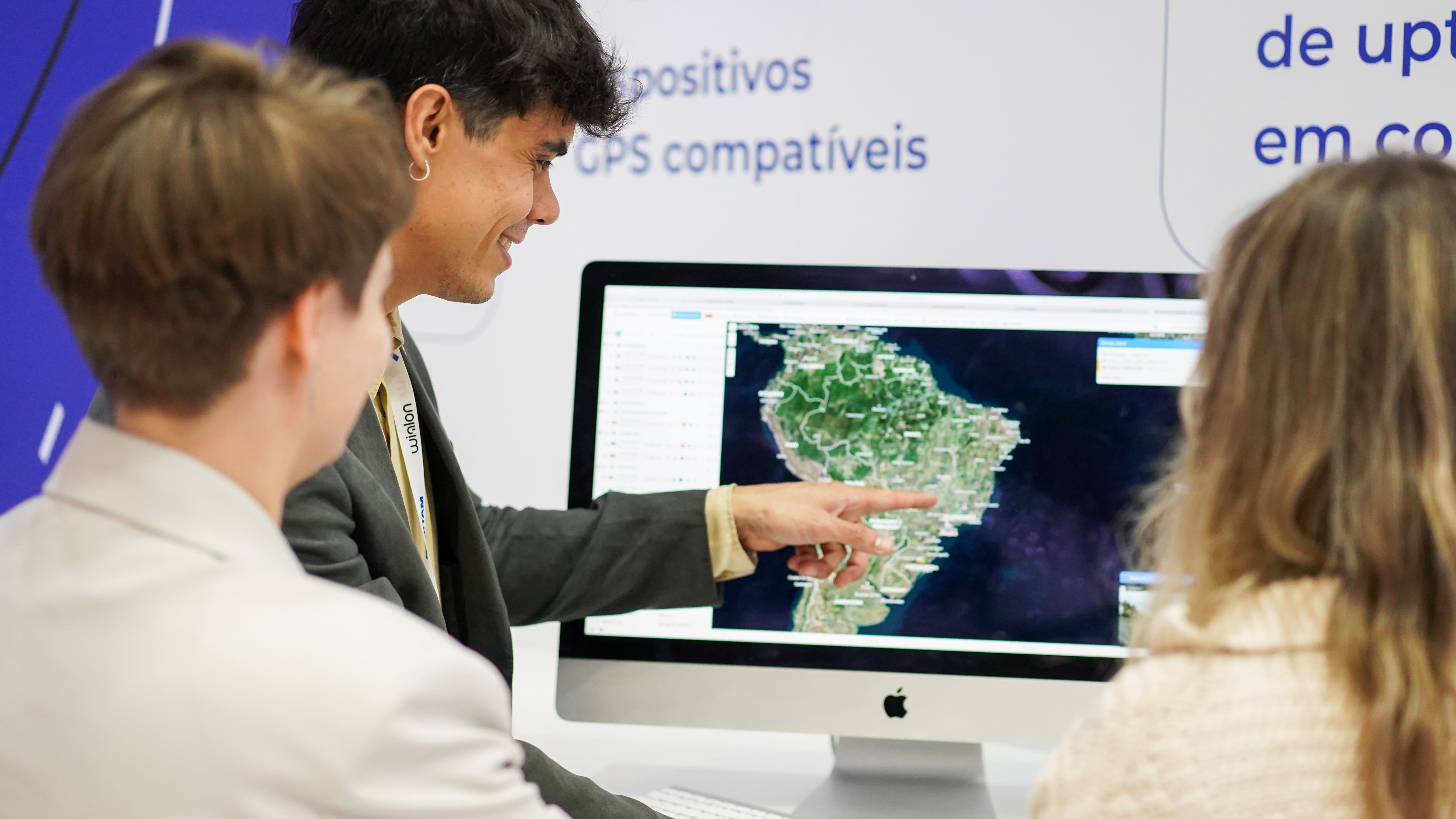


.png)
